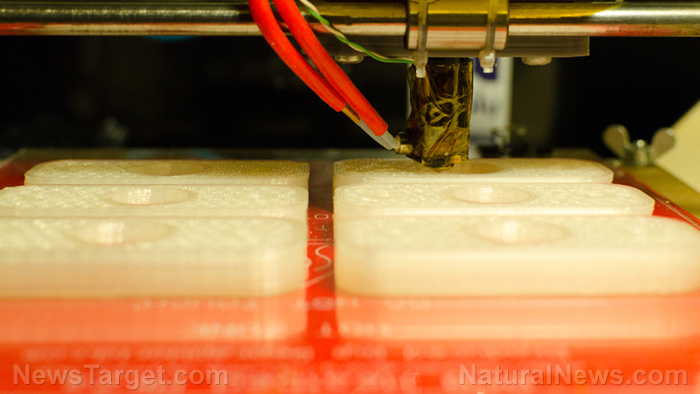Prevent diabetes with plant-based diets: It’s not just cutting sugar and carbs, it’s eating veggies and whole grains
06/20/2019 / By Zoey Sky

A healthy diet full of nutritious foods can help prevent different diseases and improve your overall well-being. And according to a recent study, following a plant-based diet can help lower Type 2 diabetes risk.
The study was conducted by researchers from the Saw Swee Hock School of Public Health (SSHSPH) and Duke-NUS Medical School in Singapore and published in the American Journal of Epidemiology.
An epidemiological study, which is “the study of how often health conditions occur in different groups of people and why,” like this can be used to determine some general population-wide associations about eating trends that are better for people, but they aren’t as effective at providing conclusions about which individual food groups suit certain people.
The researchers noted that these criteria encourage healthy eating principles. But at the same time, fruits and whole grains have higher amounts of carbohydrate, which can increase blood glucose levels. They warned that these types of foods might require more insulin production, which can negatively impact individuals who are at risk of Type 2 diabetes.
Lower diabetes risk with a whole foods-based diet
For the study, the researchers examined five different dietary patterns that were mainly based on the consumption of plant-based foods with minimally processed foods and sugar-sweetened beverages. (Related: Diet for diabetes: Consume more moringa!)
The researchers gathered health data from over 45,500 middle-aged and elderly volunteers who did not have Type 2 diabetes between 1993 to 1998. The participants were then asked to report their intake of food based on 165 items, and they were scored on how this related to one of the five dietary patterns.
After an 11-year follow-up, the researchers discovered that 5,207 volunteers had been diagnosed with diabetes. The participants who scored in the top 20 percent of the high-quality dietary patterns had a 16 to 29 percent reduction in developing Type 2 diabetes, unlike those in the lowest 20 percent.
Rob van Dam, a professor from SSHSPH and senior author of the study, shared that the findings are consistent with research in other populations wherein a healthy diet full of “minimally processed plant foods” (e.g., fruit, legumes, nuts, vegetables, and whole grains) and a lower intake of red and processed meat and sugary drinks, were significantly associated with lower diabetes.
Benedict Jephcote, the editor of Diabetes.co.uk, added that when interpreting the study, it is necessary to understand the context of the comparators. Overall, “many studies that show eating a greater intake of whole grains and lower intake of red meat as healthier can provide this association because the average person in the study is not eating healthily.”
Jephcote explained that individuals who consume whole grains usually have lower intakes of refined carbohydrates and sugar. They also tend to be health conscious and live a healthier lifestyle, which is linked to a lower likelihood of smoking and a regular exercise.
On the other hand, most people who consume red meat aren’t as health conscious. Individuals who eat a lot of red meat may also have higher than average intakes of alcohol, processed foods, and sugar. They also tend to smoke more and be less active.
Healthy foods for people with diabetes
If you have diabetes, here’s a list of nutritious foods that you need to add to your diet.
Berries
Berries contain antioxidants that can help prevent oxidative stress, which is associated with different health conditions like certain types of cancer and heart disease.
Oxidative stress occurs when there is an imbalance between antioxidants and free radicals (unstable molecules) in the body. Research has shown that individuals with diabetes have chronic levels of oxidative stress.
Blackberries, blueberries, raspberries, and strawberries are all rich in antioxidants and fiber. These berries also contain essential vitamins and minerals like manganese, potassium, and vitamins C and K.
Green leafy vegetables
Leafy greens are rich in essential vitamins, minerals, and nutrients. They also have minimal impact on your blood sugar levels. Vegetables like kale and spinach are important plant-based sources of calcium, potassium, and vitamin A. These vegetables also contain fiber and protein.
Experts suggest that people with diabetes should consume more leafy greens because they are full of antioxidants and starch-digesting enzymes.
Eat more green leafy vegetables like:
- Bok choy
- Broccoli
- Cabbage
- Collard greens
- Kale
- Spinach
Whole grains
Whole grains contain high levels of fiber and more nutrients compared to refined white grains. A fiber-rich diet is important if you have diabetes because fiber helps slow down the digestion process. The slower absorption of nutrients helps stabilize your blood sugar levels.
Foods like whole wheat and whole grains are lower on the glycemic index (GI) scale than white bread and rice. The latter also has less of an impact on your blood sugar levels.
Include the following types of whole grains in your diet:
- Brown rice
- Buckwheat
- Quinoa
- Rye
- Whole-grain bread
- Whole-grain pasta
If you want to lower your risk of developing Type 2 diabetes, avoid sugary drinks, reduce your consumption of red meat, and follow a healthy diet full of fresh fruits and vegetables.
Sources include:
Submit a correction >>
Tagged Under:
diabetes, diet, food cures, food is medicine, Fresh, fruits, functional food, healing food, natural cures, nutrition, plant-based diets, prevention, Type 2 Diabetes, vegetables, Veggies, whole grains
This article may contain statements that reflect the opinion of the author
RECENT NEWS & ARTICLES
COPYRIGHT © 2017 DIABETES SCIENCE NEWS





















